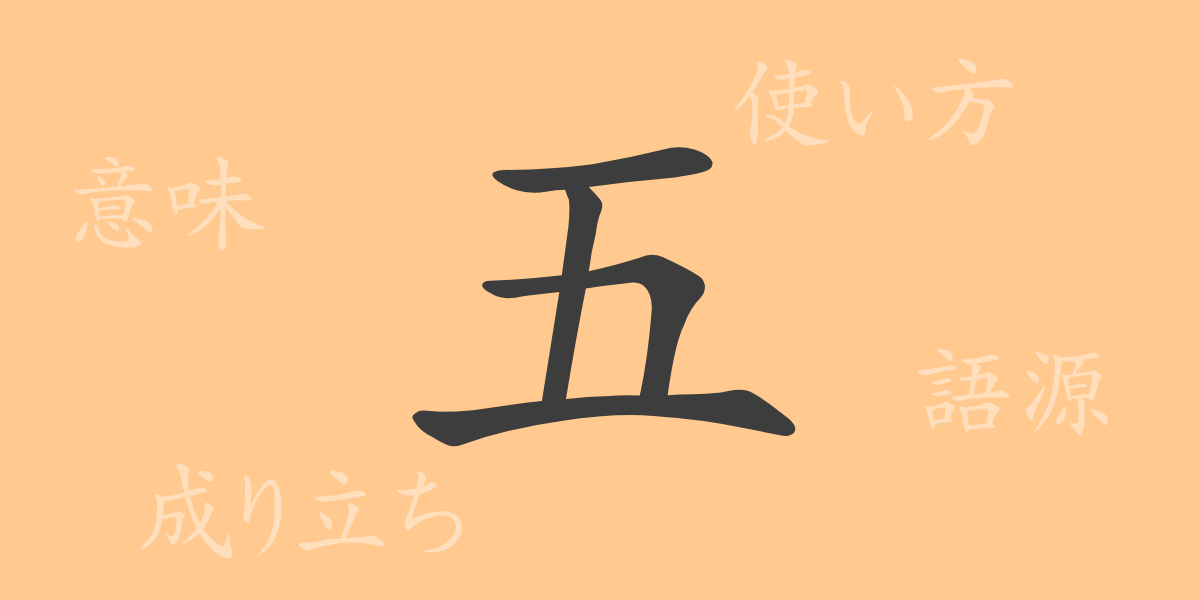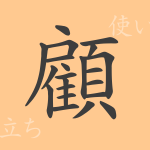Among the many kanji characters deeply rooted in daily life, “五” (ご, いつ, いつつ) stands out. This simple yet significant number holds a special place in culture and language. In this article, we focus on the commonly used kanji “五,” exploring its origins, contemporary usage, and its presence in Japanese proverbs and idioms. Let’s delve into the charm of “五” and uncover its various aspects.
Origins of 五 (Etymology)
The kanji “五” (ご, いつ, いつつ) originates from ancient Chinese numerical notation. It first appeared as an ideogram about 3000 years ago, representing five fingers. Over time, its shape evolved through numerous changes until it settled into the current form we use today.
Meaning and Usage of 五
“五” (ご, いつ, いつつ) is one of the fundamental kanji used to represent the number five. It is essential for counting five objects and plays a significant role in various classifications, such as the five senses (五感 ごかん) and the five continents (五大陸 ごたいりく). In daily life, “五” is frequently used to indicate numbers, order, and groups.
Reading, Stroke Count, and Radical of 五
The kanji “五” (ご, いつ, いつつ) has several readings in Japanese.
- Readings: On’yomi (音読み) is “ご” (ご), and Kun’yomi (訓読み) includes “いつ” (いつ) and “いつつ” (いつつ).
- Stroke count: “五” consists of 4 strokes.
- Radical: The radical is “二” (に), but “五” itself can also function as a radical.
Idioms, Phrases, and Proverbs Using 五
There are numerous idioms, phrases, and proverbs in Japanese that include “五” (ご, いつ, いつつ). For instance, “五感” (ごかん) refers to the five senses, and “五月雨” (さみだれ) describes the intermittent rain during the rainy season. The expression “五里霧中” (ごりむちゅう) signifies being in a state of confusion or uncertainty. These terms reflect their deep integration into Japanese life and expression.
Summary of 五
The meanings embedded in a single kanji are profound, and their usage is diverse. The kanji “五” (ご, いつ, いつつ) serves not only as a numerical representation but also holds a special role in culture and language. Understanding how “五” is used in Japanese words and culture is incredibly beneficial for deepening your knowledge of the Japanese language.

























